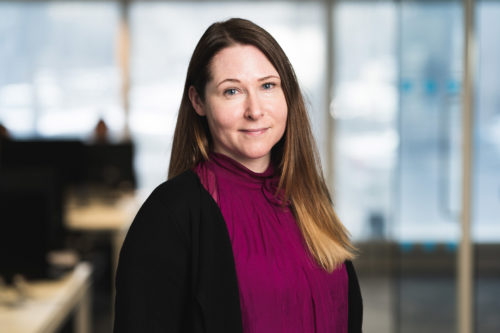
latest
Sci Fi authors discuss their Fictions stories
A look on the dark and light sides of future health care

“There are many possible futures.” Dr Josefine Magnusson, FCC’s Senior Research Officer

Future Care Capital’s year-long “thought experiment” to stimulate new ideas among policy makers and practitioners in health and care through fiction is complete.
Fictions: Health and Care Re-Imagined, a series of 12 stories involving four Sci Fi writers and one illustrator to inspire debate and new thinking about AI, technology and data, has concluded with a webinar and panel discussion chaired by Dr Josefine Magnusson, FCC’s Senior Research Officer.
“There are many possible futures,” said Magnusson.
Introducing the four Sci Fi authors involved in the project: Keith Brooke, Anne Charnock, Liz Williams, Stephen Palmer, and illustrator Vincent Chong, she added: “Fiction engages the brain in a different way from facts.”
Questions to the “collaborators” about the inspiration for their stories and influences on their work, led to a lively discussion about the benefits of exploring health issues in fiction, and imagining what tech could lead to in the near future.
The first story, Palmer’s Goodbye, a positive look at VR use in a “living funeral” was published in July 2020. Ideas and division of themes had been agreed at brainstorming sessions just before Covid, which stopped them meeting together.
Brooke, who was also the project’s commissioning editor, said: “It was a difficult time. Difficult to imagine the future in five, ten, or more years when you didn’t know what the future was going to be like in five weeks!”
It was also a challenging time for Chong, the project’s illustrator, having to work on images for monthly deadlines while the stories were still being written and sometimes changed.
Some of the stories are dark and dystopian. But Chong is an optimist, and said he deliberately used light colours in his images to reflect hope for the future. He believes “images can help people emotionally connect ideas.”
“Images make it easier to visualise where we are going. It’s better than throwing data at them,” he added.
Sources of inspiration for the stories were many and varied. Charnock, author of four novels, said she sometimes got ideas from attending conferences and events to hear medical speakers.
Her story All I Asked For was shortlisted for the best science fiction story of 2020 and was included in the Best of British Science Fiction Anthology. She had started research for it by reading the 2012 non-fiction book Like A Virgin, How Science is Redesigning the Rules of Sex by Dr Aarathi Prasad.
During the discussions it was suggested that professionals were “constrained by facts” in trying to solve some problems, for example, combating anti-vaccination conspiracy theorists. It was agreed there was a need to focus on new ways of gaining people’s trust.
Williams raised concerns about surveillance and what it might lead to in the future. She said there was a need to explore these issues now, “before they become a problem” as in her story Stealthcare.
For example, an important issue was the collection of patients’ data and how it might be used in the future. If it fell into the hands of insurance companies would it lead to patients being refused treatments?
Brooke, too, explored health surveillance in his story Life’s Lottery about personal medicine.
Ethical issues and the unintended consequences of innovations in tech were also raised by the panellists.
Panel chair Magnusson commented, FCC could have just done a literature search instead of commissioning fictional Sci Fi stories to stimulate debate.
Judging by the discussion and questions, the decision to go for a “thought experiment” instead was the right one!

To download your free 120-page copy of the Fictions anthology, register your details below:
You have successfully downloaded the anthology!
download